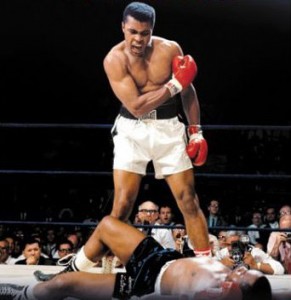Buy Button Rehab: Why I Recorded Podcast Episode 90
Here’s the backstory for podcast episode 90. It’s my explanation of what prompted the rant.

Buy Button Rehab: Why I Recorded Podcast Episode 90 Read More »
Sales and Marketing
Here’s the backstory for podcast episode 90. It’s my explanation of what prompted the rant.

Buy Button Rehab: Why I Recorded Podcast Episode 90 Read More »
Podcast: Play in new window | Download ()
Subscribe: Apple Podcasts | Spotify | RSS | More
Podcast: Download
 Internet marketing is full of snakes who want your money. We all love our dreams though. And most of us dream of more money!
Internet marketing is full of snakes who want your money. We all love our dreams though. And most of us dream of more money!
A person buys a couple of domain names. Cost $15.74.
They invest in a year’s worth of shared hosting. Cost $83.40
They use WordPress, which is free, but decide on a premium theme. Cost $87.
Grand total of starting an online business capable of earning tens of thousands, perhaps more? $186.14
Three months pass. Nothing.
Six months passes. Still nothing.
Undeterred, another month passes. Nothing. Now depression sets in. Funk hit.
Hardheaded persistence prevails and another five months pass before they cry, “Uncle!”
They’ve managed to turn an annual investment (it’s really an expense) of $186.14 into an utter waste of time. That’s if they’re lucky.
The unlucky people have spent far more, in both time and money. They’ve purchased one $1997 information product after another. They’re on every Guru’s email list. They’ve purchased from all the big names. Thousands of dollars have been spent fueling their dream. They’re convinced success is happening for everybody with an online endeavor. They just lack the information necessary, but that next Guru Launch is going to be the missing link to their online success. They’ve foolishly swallowed lies or anecdotal evidence. Like lottery players all over the country, they embrace the dream of “getting lucky.”
Here’s the Wikipedia entry for the phrase “anecdotal evidence” –
The expression anecdotal evidence refers both to evidence that is factually unreliable, as well as evidence that may be true but cherry-picked or otherwise unrepresentative of typical cases.[1] In other words, there are two distinct meanings:
(1) Evidence in the form of an anecdote or hearsay is called anecdotal if there is doubt about its veracity; the evidence itself is considered untrustworthy.
(2) Evidence, which may itself be true and verifiable, used to deduce a conclusion which does not follow from it, usually by generalizing from an insufficient amount of evidence. For example “my grandfather smoked like a chimney and died healthy in a car crash at the age of 99” does not disprove the proposition that “smoking markedly increases the probability of cancer and heart disease at a relatively early age”. In this case, the evidence may itself be true, but does not warrant the conclusion.
In both cases the conclusion is unreliable; it may not be untrue, but it doesn’t follow from the “evidence”.
Evidence can be anecdotal in both senses: “Goat yogurt prolongs life: I heard that a man in a mountain village who ate only yogurt lived to 120.”
The term is often used in contrast to scientific evidence, such as evidence-based medicine, which are types of formal accounts. Some anecdotal evidence does not qualify as scientific evidence because its nature prevents it from being investigated using the scientific method. Misuse of anecdotal evidence is a logical fallacy and is sometimes informally referred to as the “person who” fallacy (“I know a person who…”; “I know of a case where…” etc. Compare with hasty generalization). Anecdotal evidence is not necessarily representative of a “typical” experience; statistical evidence can more accurately determine how typical something is.
Do not trust an Internet marketer selling information products for $1997.
Resist the temptation. You can learn how to build a business without supporting these people. Sadly, some people still feel compelled to keep buying. Convinced there are secrets they don’t yet know, they read every sales letter, open every email and watch every sales video. Resisting the BUY button is difficult, even though the credit card bills keep on rolling in.
Don’t let that be YOU. Protect yourself.

Episode 90 – How I Turned An Investment Of $186.14 Into An Utter Waste Of Time Read More »
This is a continuation of the last show, How To Succeed In Business By REALLY Trying.
The one-hit wonder defines a career. The sophomore slump doesn’t necessarily define a career, but it might. It depends on what happens in the years that follow.
We dream, we work and we prepare for an opportunity. Waiting for the door to crack open – even if only slightly – we hope for a chance.
Knowing what to do with an opportunity is an important component in how to succeed in business by really, REALLY trying.
Today’s show is all about the process – embracing it, enduring it and finding ways to even enjoy it. Rejection, failure and disappointment are part of it. The process is incomplete without them.

Mentioned in today’s show:
• Willis Alan Ramsey
• Muskrat Love performed by America, written by Willis Alan Ramsey
• Ballard of Spider John performed by Jimmy Buffett, written by Willis Alan Ramsey
• Robin Williams successfully morphed from mere comedian to serious dramatic actor
• Steve Martin successfully morphed from standup comic to actor to author and all the while he was an accomplished musician. He’s just released a new record with The Steep Canyon Rangers.
How To Succeed In Business By Really, REALLY Trying Read More »
How to Succeed in Business Without Really Trying was a movie – a musical – released in 1967. Here’s the quoted storyline according to the entry in the Internet Movie DataBase:
Twenty-seven year old New York window washer J. Pierpont Finch believes he can be a success in the corporate world after he impulsively picks up the book “How to Succeed in Business Without Really Trying”. The book promises its reader that he can climb the corporate ladder simply and quickly.
Reality is much different. The fact is, business is hard. Success is hard.
Don’t let that deter you. But, don’t be fooled by the false notion that you can achieve success without really trying.
Let me begin a discussion about finding success online. Online because that’s what most of us care about. Even if we ship a physical product, most people are now focused on selling and marketing online because that’s where the prospects are.
For years now we’ve been fed advice, information and lies. Misinformation has never had a bigger platform than the Internet. Liars, con men and grifters need not ever leave their house in today’s world. Gypsies are domesticated. Home is where the broadband is.
Not all people are dishonest though. Some are simply selling the messages they know the market wants. In every age, the market has wanted easy!
McDonald’s proliferated the landscape of our country in the late 1960’s. Mere millions were being served then. Easy, fast and inexpensive burgers were unique then. People flocked to the concept, even if the menu was limited. We wanted fast and easy. Inexpensive was an added bonus. So what if it wasn’t the best burger? Look at how cheap they are – and how fast we get them!
Quality was average, but predictable. That has become the mantra of our country. It has affected our cities, our states, our businesses, our schools and our homes. Average and predictable. We love it. We wrap our arms around it. Extraordinary lost the battle because it was just too hard.
Unfortunately many people have been adversely affected by the idea of easy when it comes to business building. So many things in our lives are easy, convenient and cheap – we often are misled to think our own online success is also easy, convenient and cheap. When the truth hits us, we’re discouraged, depressed and many of us quit. It’s all smoke and mirrors designed to eliminate us from the game while others keep going.
The world scoffs at losers. Like a scene from a Monty Python movie, the world piles up the dead remains of one business after another. The biggest part of your success will demand that you refuse to throw your dreams onto the trash heap by stopping. Don’t stop taking action. Don’t stop trying things. Don’t stop to rest. Your success will demand relentless pursuit.
Time and attention are the currency of the day. Gone are the days when the things you value most are counted in dollars and cents. Make no mistake. They’re connected. If you cannot capture time and attention of prospects, you’ll never earn their business and turn them into a paying customer!
Strategies, tactics and techniques aren’t the holy grail. You may be urged to think they are, but it’s a lie. Sure, you should learn these things, but know going in – they won’t make you successful.
One factor determines success more than any other single element. Getting attention! That’s the subject of the today’s video show.
Speaking of time and attention, thank you for giving me yours.

Mentioned in today’s show:
• In Search of Excellence by Tom Peters and Bob Waterman
• Good To Great by Jim Collins
• Kevin Kelly of Wired is among the smartest people on the planet
• The Tipping Point by Malcolm Gladwell
How To Succeed In Business By REALLY Trying Read More »
Podcast: Play in new window | Download ()
Subscribe: Apple Podcasts | Spotify | RSS | More
 Muhammad Ali vs. Sonny Liston. Ali knocked him out. May 25, 1965. It’s one of the most famous photographs in the history of sports. There was controversy about it because nobody saw the punch landed. Even the referee was confused as he watched Ali stand over the fallen Liston and yell, “Get up and fight, sucker!”
Muhammad Ali vs. Sonny Liston. Ali knocked him out. May 25, 1965. It’s one of the most famous photographs in the history of sports. There was controversy about it because nobody saw the punch landed. Even the referee was confused as he watched Ali stand over the fallen Liston and yell, “Get up and fight, sucker!”
This was the second fight between the two boxers. The first took place on February 25, 1964. After the 4th round Ali returned to his corner, after he had clearly taken it easy that round, and declared he couldn’t see. Something was burning his eyes. Perhaps it was something Liston’s cut man used to prevent bleeding – and had transferred to Liston’s gloves. Perhaps it was something intentionally put on Liston’s gloves. Who knows? This much we do know, Ali wanted to quit.
According to fight reporters, Angelo Dundee refused to let Ali quit. “This is the big one, daddy . . . we’re not quitting now!” He washed Ali’s eyes (then known as Cassius Clay) with a sponge, then pushed him off his stool to begin the fifth round. Witnesses said Dundee hollered at Ali, “Get out there and run.”
By round six Ali’s sight had cleared. Liston went to the corner at the end of round six complaining he’d hurt his shoulder. He didn’t answer the bell for the seventh round. Ali was declared the winner by technical knockout. Victory for Ali occurred just two rounds after he wanted to quit.
I have no idea how hard it is to fight for the world championship in boxing’s heavyweight division. I sure don’t know what it would be like if you were unable to see clearly. Ali did it.
He only had to do it for two rounds, but do you suspect he could have gone longer if needed? Sure. His will to win was evident. His cockiness and confidence were unquestioned, but even “The Greatest” needed the voice of a coach, Angelo Dundee, telling him to keep going. Don’t quit.
Today, I’m going to play the role of Angelo Dundee. You be Ali.

Referred to in today’s show:
• News about Facebook and Google
• Episode 5 – Leaning Toward Wisdom
Podcast: Download
Episode 89 – The Will To Win: Let Failure Fuel Your Confidence Read More »
Podcast: Play in new window | Download ()
Subscribe: Apple Podcasts | Spotify | RSS | More
 You hate selling. It embarrasses you. You feel like a lowlife…like you’re wearing a polyester leisure suit.
You hate selling. It embarrasses you. You feel like a lowlife…like you’re wearing a polyester leisure suit.
You’re an idiot. Not because you’re selling, but because you feel like dog meat when you do.
If our founding fathers hadn’t shared their beliefs and convictions…our constitution would have never been written or adopted.
The cool stuff in your house – that stuff you really love – wouldn’t be there if somebody hadn’t sold it to you.
No, there’s no difference in the two sentences above. One is an idea. The other a product. But the fact is, if neither had been shared, then others wouldn’t have benefited. Neither would have spread. Or succeeded.
I love Field Notes. You can check out episode 87 and see a picture of 5 of them. I have dozens more. I’ve spent way yonder too much money with these cool kids in Chicago who market and sell Field Notes notebooks.
I bought my first 3-pack when they were first introduced. Since then, I’ve found them irreplaceable. Moleskines don’t replace them. Reporter’s Notebooks won’t either. Field Notes are unique. And I never knew I needed them until they told me I needed them. And until they shared with me why I needed them. Boy am I glad they shared the story – otherwise, I’d have never known about them.
Marcus Sheridan is known as The Sales Lion. He and some buddies started a swimming pool company, River Pools & Spas. Marcus started blogging about swimming pools. He wasn’t shouting, “Buy a pool from us!” He was simply sharing his insights and expertise on swimming pools. Every day his company encountered people who had questions about having a pool built, owning a pool and maintaining a pool. What to blog about? Marcus had a made-to-order content strategy – he set about to blog the answers to all those questions. Selling was sharing. Sharing was selling.
On Tuesday, May 10th Seth Godin posted a blurb over at The Domino Project entitled, “The paradox of the paid PDF ebook.” It’s applicable to today’s show because it’s also about the power of sharing.
The world will never know the value of your offer if you refuse to share. The world needs more value. The world needs the benefits you bring. Start sharing. Freely.

Podcast: Download
Episode 88 – Share, Don’t Solicit! (The World Needs To Know What You Have To Offer) Read More »